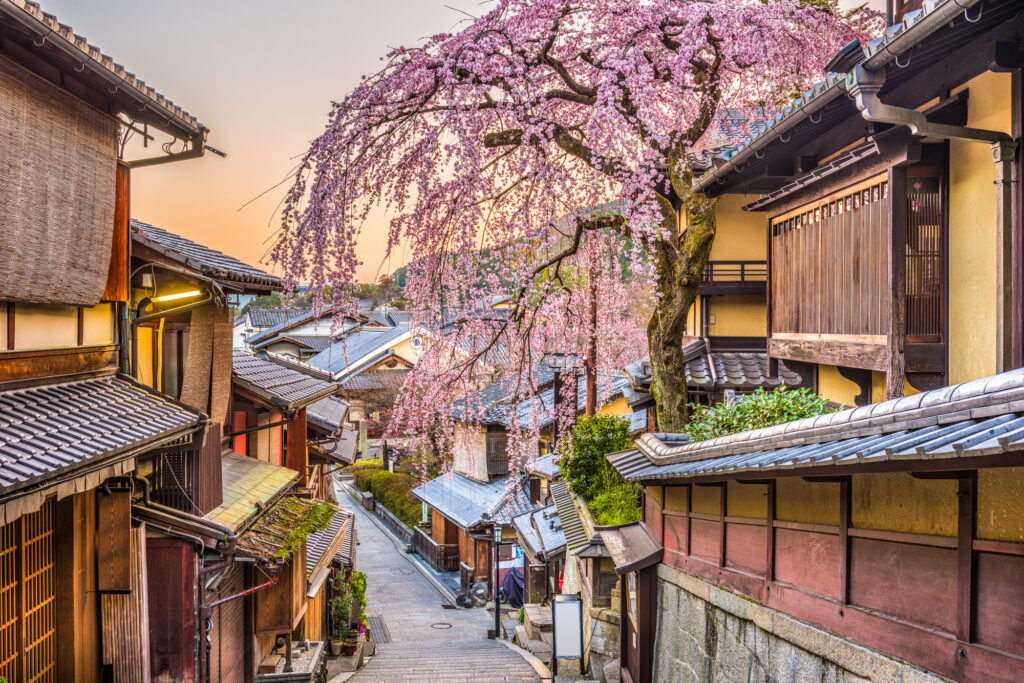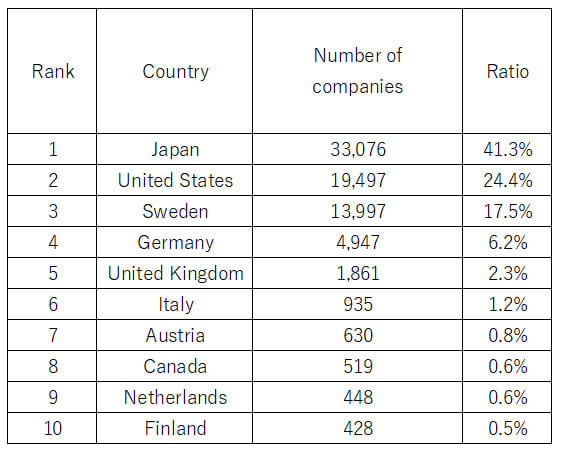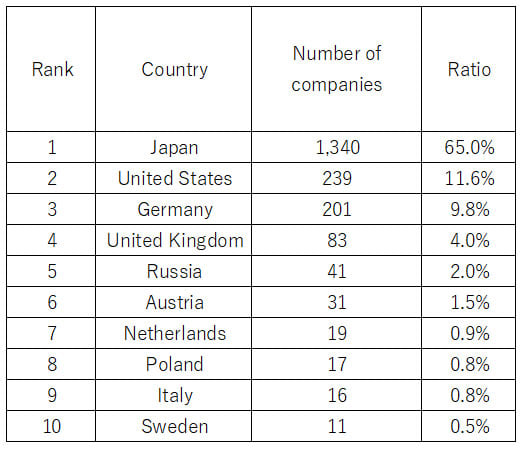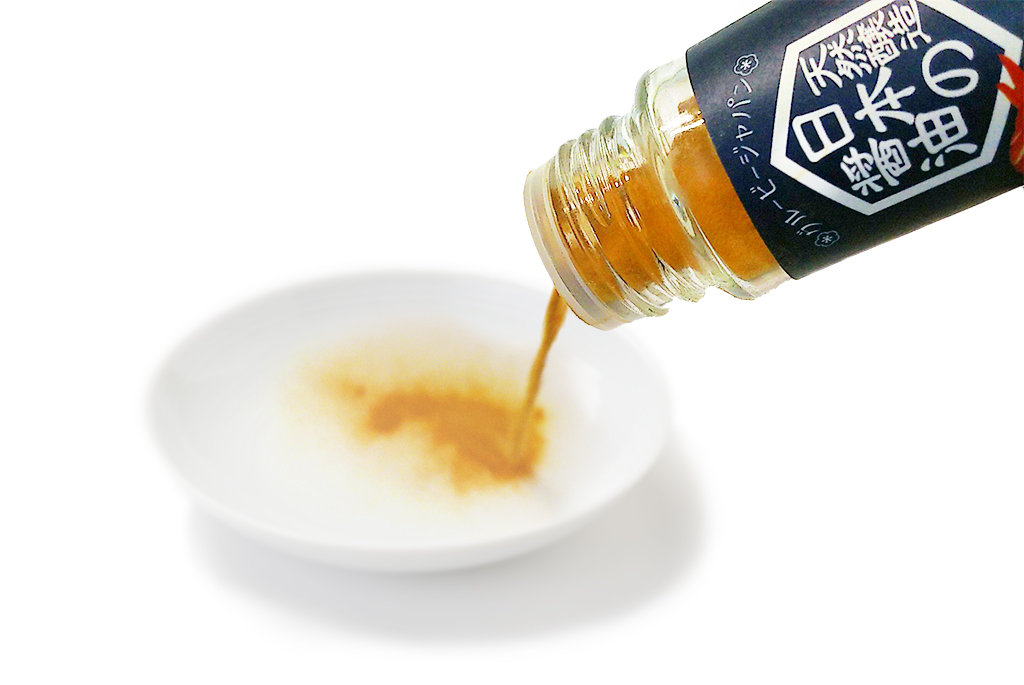Japan boasts world’s longest-living people & firms
Japanese people has a long life expectancy amongst the world.
But did you know that Japan also have many businesses running for more than 100 years?

Japan’s Long Life Expectancy
According to the 2021 statistics released by the WHO, the average life expectancy of the Japanese is 84.3 years. This can be attributed to Japan’s good food culture and lifestyle, coupled with a well-developed medical system.
Japanese people often refer to Japan as a ‘small country’. However, with over 100 million people, Japan is a much larger country than they think.
Despite having such a vast population, its life expectancy remains the highest in the world. This is truly astounding.
And did you know that Japanese companies also have the longest life expectancy in the world?
Nikkei BP Consulting, Inc. conducted a survey on the number of companies that have been in business for 100 years or more by country in 2020. According to this survey, 33,076 companies in Japan have been in business for more than 100 years. This accounts for 41.3% of the global total.

When it comes to companies that have been in business for more than 200 years, there are 1,340 companies in Japan (65% of the global total).

Famous Cases of Long-lived Business in Japan
In Kyoto, a city with a history of over 1,200 years, a 50-year-old company is considered young. They say that after more than 100 years in business, a company finally reach a decent reputation. Wow!
So why do Japanese companies have such longevity? One business consultant analyzes it as follows.
(1) Many companies have their own unique feature
(2) Many companies have stable management
(3) Many companies value their employees
James Christian Abegglen (an American business theorist) pointed out 3 key features of Japanese companies: (1) each has its own company union (In fact, it’s limited to large companies…), (2) lifetime employment, and (3) seniority system. He calls these the “Three Sacred Treasures” of Japanese business management.
However, these management systems are no longer functioning well due to various factors surrounding Japanese society. It is unclear whether these three features will continue to exist in Japanese companies in the future.
Let’s return to the topic at hand.
When Nikkei BP categorized the sectors that tend to have long-lived companies, they found that most were in manufacturing, retail and wholesale.
Founded in 578, Kongo Gumi Co., Ltd. is the world’s oldest company. In November 2005, it became a sub-subsidiary of Takamatsu Corporation, a well-known mid-sized general contractor.
The oldest listed company in Japan is Matsui Corporation. This company was founded in 1586.
Toyota is on the roads all over the world. Toyota Industries Corporation, the source of the group, was founded in 1926. It will soon be celebrating its 100th anniversary. Toyota Motor Corporation, the core company of the Toyota Group, has 370,000 employees in its global operations.

And the Halal powdered soy sauce with Salam Groovy Japan original label is produced by MUROJI. It’s the world’s first soy sauce brewery founded in 1573.
J-Line Corporation, the operator of Salam Groovy Japan, has a track record of doing business with 100,000 Japanese companies over the past 30 years, mainly in job advertising. We want to bring the products and services of Japanese companies to the Islamic market.
From Japan To Islamic World
Japanese products have much in line with the Islamic Toyyiban (or tayyiban). Toyyib (root word of toyyiban) is an Arabic word meaning “good”. Based in the Holy Quran, for example:
O mankind, eat from whatever is on earth [that is] lawful and good and do not follow the footsteps of Satan. Indeed, he is to you a clear enemy.
(Al-Baqarah 2:168)
From the verse, aside from having things that are lawful (Halal) by the Islamic law (Syariah), it also emphasizes the safety and quality of the products or foods (this means the goodness = toyyiban).
And Japan does have various products that are beneficial to many people.
Of course, by complying with Syariah (Islamic law), we would love to establish friendly relations with Muslims worldwide while introducing Japanese products to them.
We have a network of Japanese companies keen to expand into the Halal market in Malaysia & Indonesia.
If you are interested in connecting with sustainable technology companies in Japan, simply JOIN the network from below. We will match the right one for you!




